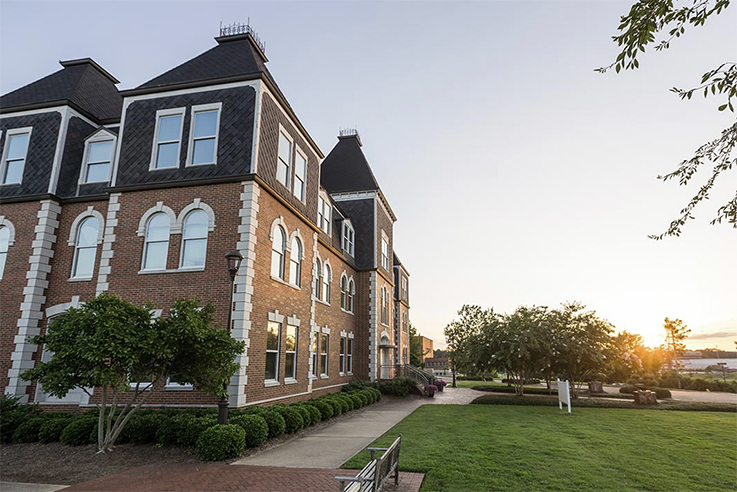In an ever-evolving world, education systems are continuously challenged to adapt and prepare students for real-world scenarios. One such adaptation comes from Louisiana Tech University, where they have taken a unique and innovative approach to education. By fostering collaboration between students from different disciplines, the university aims to bridge the gap between theoretical knowledge and practical application. In a groundbreaking move, the Office of Health Informatics and Information Management (HIIM) and the Division of Nursing at Louisiana Tech University recently organized a collaborative project: a virtual escape room. This innovative endeavor allowed students from both disciplines to work together, tackling common challenges encountered in the healthcare industry. By blending healthcare knowledge with management concepts, students gained valuable insights and practical experience, setting the stage for a more holistic and integrated approach to their future careers.
Breaking Down the Silos: The Need for Interdisciplinary Learning
In traditional educational settings, students often find themselves confined within the boundaries of their specific disciplines. This siloed approach, while providing in-depth knowledge in a particular area, sometimes fails to prepare students for the complexities of the real world. Nowhere is this more evident than in the healthcare industry, which demands collaboration between professionals with diverse expertise. Recognizing this, Louisiana Tech University has embarked on a mission to break down these disciplinary silos.
The Virtual Escape Room Experience: An Immersive Learning Opportunity
The centerpiece of this innovative approach is the virtual escape room experience. This educational tool was meticulously designed to provide students with a hands-on, immersive learning opportunity. It was not just an exercise but a simulation of real-world scenarios where nursing and HIIM intersect in the healthcare sector. These scenarios demanded that students draw upon each other’s expertise in healthcare, information management, and administration to succeed.
Facilitating Real-World Problem Solving
The virtual escape rooms posed three challenging topics, each requiring students to apply their knowledge effectively:
- Uncovering an Incident: Students had to investigate and respond to questions related to uncovering an incident in a case study scenario. This task encouraged critical thinking and problem-solving skills as they navigated through a complex medical situation.
- Filling an Occurrence Report: Filling out an occurrence report accurately is crucial in healthcare. This aspect of the escape room experience allowed students to practice this essential skill in a simulated environment, ensuring they are well-prepared for their future roles.
- Completing a Root Cause Analysis (RCA): Root cause analysis is a vital process in healthcare quality improvement. Students were tasked with completing an RCA, emphasizing the importance of identifying the underlying causes of problems and implementing effective solutions.
Measuring the Impact: Student Confidence in Learning
To gauge the effectiveness of this innovative approach to learning, students were asked to complete the National League of Nurses confidence in simulation scale after the activity. This scale provides valuable insights into how students perceive their learning experiences and their level of confidence in applying their knowledge and skills in real-world scenarios. Melissa Madden, an assistant professor in the Division of Nursing, played a pivotal role in designing the virtual escape rooms and conducting research on student responses to the simulation scale.
Positive Results: Boosting Student Confidence
The research findings revealed a resounding success. The virtual escape room format proved to be an effective teaching method, significantly boosting students’ confidence in learning and mastering the content of the simulation. This outcome is a testament to the power of interdisciplinary, hands-on learning experiences.
The Broader Implications: Preparing Students for the Real World
Louisiana Tech University’s collaborative project, featuring virtual escape rooms for students from the nursing and HIIM departments, exemplifies a forward-thinking approach to education. By bringing students from different disciplines together to solve real-world healthcare challenges, this initiative prepares them for the complex and interconnected nature of the healthcare industry.
The Power of Collaboration: The Key to Solving Real-World Problems
This project is a testament to the university’s commitment to innovative, effective, and practical education that prepares students for success in their careers. It not only enhances their knowledge and skills but also fosters a spirit of collaboration that is invaluable in today’s healthcare landscape. In an era where teamwork and interdisciplinary approaches are paramount, Louisiana Tech University’s initiative stands as a beacon of progress in the field of education. As we move forward, it serves as a compelling example of how breaking down disciplinary silos can empower students to tackle real-world problems with confidence and competence.
Louisiana Tech University’s commitment to interdisciplinary learning is not just an educational experiment; it’s a forward-looking strategy to equip students with the skills and confidence they need to thrive in their careers. By embracing innovative approaches like virtual escape rooms, the university is setting a new standard for preparing students for the challenges of the modern world. As we continue to navigate a complex and interconnected global landscape, the ability to collaborate across disciplines is becoming increasingly vital. Louisiana Tech University’s visionary approach serves as a model for institutions seeking to bridge the gap between education and real-world application, ultimately empowering students to become the problem-solvers and innovators of the future.

